A Step in the Right Direction
Learning Programmes
Pukeko Room (Pre-school)
3 – 5 years – School Readiness
Teachers have three loves: love of learning, love of learners, and the love of bringing the first two loves together.”
Our Pukeko Room is the last stop before our children enter their first stages of formal learning.
For a child to enter primary school with confidence and to sustain this confidence, they need to have extensive prior learning and experiences which provide starting points for further learning.

At Pokeno Childcare Centre, we commit to making this transition exciting with the knowledge that they “can do it”. Within our curriculum, our children are given the opportunity to develop foundation skills so that when they move into more formal learning situations they will find success more readily and be more switched on to learning.
Foundation Skills involve the provision of experiences that support the development of auditory skills, visual processing, memory skills, movement patterns, sensory activities and language. Daily immersion in these experiences helps the brain to develop a rich network of neural connections so that when children enter formal learning they have the ability to remember what they see and hear. Being ready for school is more than just being able to recognise one’s name, count to twenty and get along with others. Children need to develop a vast array and number of skills and understandings that will prepare them for the world of school and for the demands of literacy and numeracy.
The Pukeko room has longer mat times than the rest of the rooms. We encourage “mat manners” which is listening, looking and sitting nicely. New entrant children need to be able to absorb information in a teacher directed environment. For this to happen they need to be able to control their body impulses to move and fidget, have the capacity to listen for information on what to do in the learning environment and understand the cues of the teacher through looking and observing.
We have a daily morning meeting during which we focus on children’s news. Children have an opportunity to say their mihi and pepeha, which includes their name and family members’ names, and to call on their peers for questions. We also have a daily midday mat time which focuses on numeracy and literacy skills, including handwriting.

During our daily group project times, children collaborate with each other and with the teachers to explore a question or theme in an in-depth way. Teachers ask open ended questions to gain information on the child’s working theories of the world they live in – this is often called “child’s voice” and you may see this in learning stories or documented in the project book.
When children feel comfortable to offer their “voice” in front of their peers, their confidence to talk in front of others grows; as does their ability to value and critique their own and other ideas.
We encourage independence and responsibility which builds self-esteem as children start to understand that they can do things themselves and that their choices have outcomes.
Children learn to take care of their own belongings, to clean up after themselves and be respectful to one another. Learning to share, take turns, show leadership, resolving conflict and persisting with difficulty are all depositions that are further encouraged in the Pukeko room.
How we capture and communicate children’s learning
By making learning visible, our teachers are able to better understand the thinking and emotions of the children, gaining insight into their understanding of the world around them. Documentation provides a medium for parents to share the journey of their children’s learning while creating an archive for the class giving children the opportunity to revisit material.
Wall Documentation Displays are purposeful and intentional. Displays highlight learning experiences of the project, a spontaneous event, or an art experience demonstrating in a pictorial way the engagement of children in their own learning.



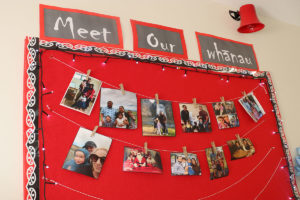





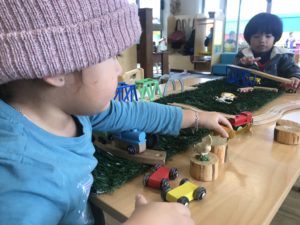



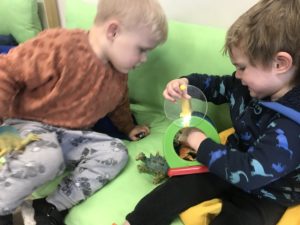
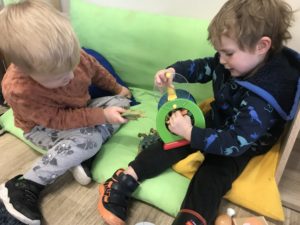

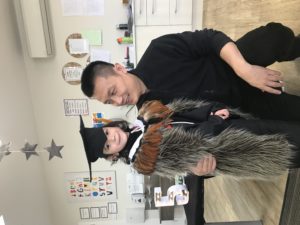
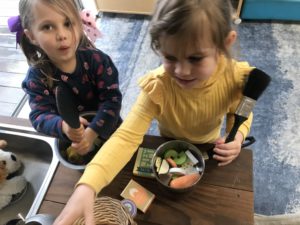

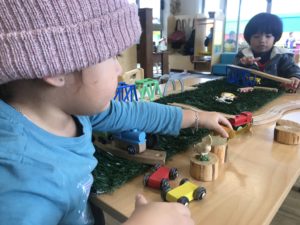
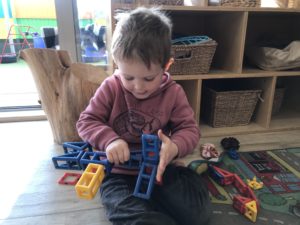
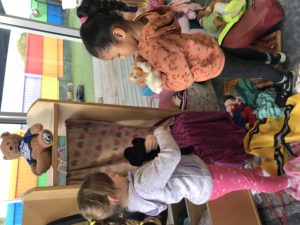

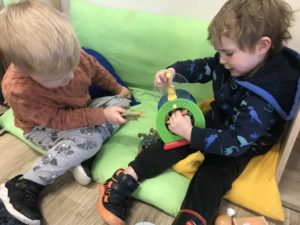


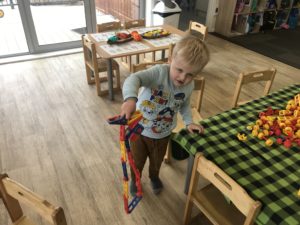





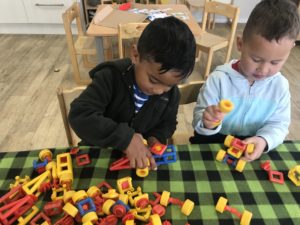



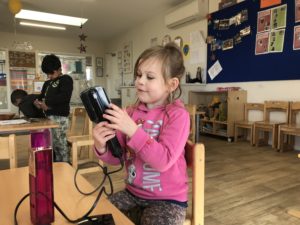





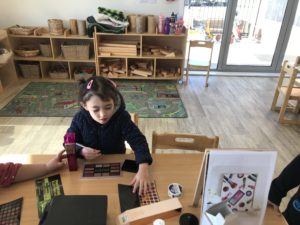
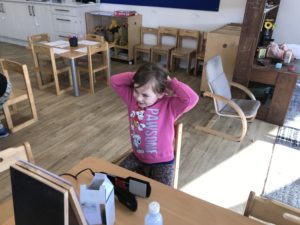




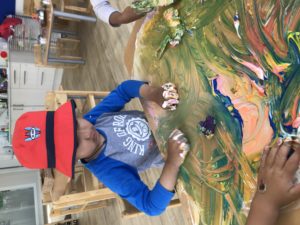




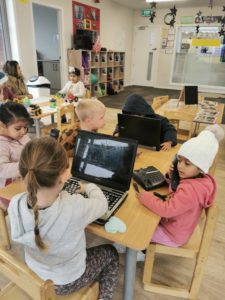


Previous
Next

